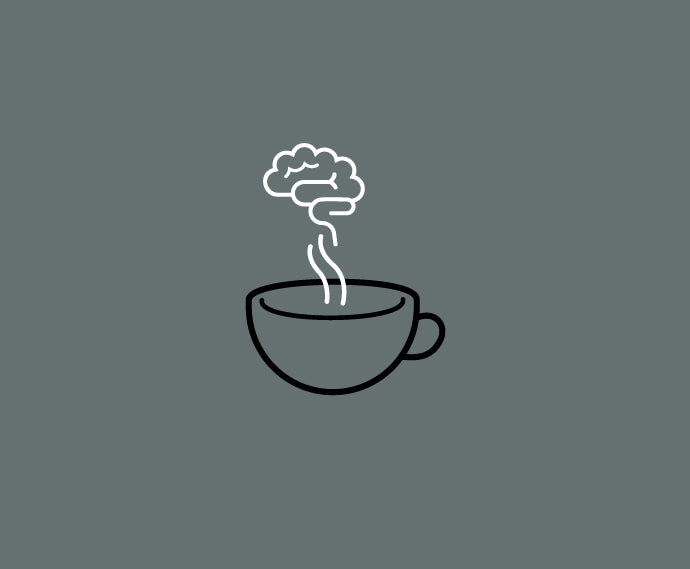ENJOY 15% OFF A NEW SUBSCRIPTION

More Than A Cup of Coffee: 15 Preventative Health Benefits of Coffee Based on Scientific Research
Disclaimer: The information in this article is not intended to treat, diagnose or provide medical care. Please contact your health professional before making any medical decisions.
With nearly 500 billion cups of coffee consumed every year the question should be answered: “Does coffee just taste good or is it actually good for you?”
Since as early as the 16th century, when coffee was first discovered by Ethiopian goats, coffee has been recognised as having a positive impact on both your overall health and your personal wellbeing.
It turns out that according to many leading health researchers from around the world, drinking either caffeinated or decaffeinated coffee has incredible health benefits. These health benefits are especially evident when coffee has become a part of your long term, daily routine. A 2013 European Endocrinology study found that drinking multiple cups of coffee daily works to prevent devastating diseases like Alzheimer’s Disease, type 2 diabetes and even Parkinson’s Disease.
The European Endocrinology study found that regular, daily coffee drinkers were “more protected from the risk of contracting diabetes than individuals who do not drink coffee” and with each additional cup that you drink per day, your risk of diabetes is reduced by an additional 7%.
Two separate research studies conducted by a Dutch research team and a Finnish research team both revealed that participants who drank “at least 7 cups of coffee per day were half as likely to develop type 2 diabetes compared with those who did not consume coffee.”
The Finns possess quite the authority on healthy coffee drinking habits as they are the number 1 coffee consuming country with 12 kg (26.45 lbs) per capita. Followed by Norway, Iceland, and Denmark respectively. Interestingly enough, these countries are also considered to be some of the top 10 healthiest countries in the world.
Drinking coffee has also shown to have a “number of beneficial effects on the brain, including an inverse association with depression and suicide” and has even been shown to provide effects comparable to a short nap. And a Finnish study found that people who drink 3-5 cups a day had lower risks of developing dementia and Alzheimer’s disease compared to those who drink little or no coffee.
Research medical studies have also found links between coffee consumption and cancer prevention. Specifically protection from cancers such as hepatocellular cancer, endometrial cancer, and colorectal cancers.
Drinking coffee regularly does not only prevent major diseases like Parkinson’s Disease, Alzheimer’s Disease and certain cancers, but it has also been found by the Epidemiological Studies of Coffee Consumption and Health Impacts to aid the body in the following beneficial ways:
- Lowers the risk of stroke in females
- Reduces inflammation
- Lowers insulin sensitivity
- Improves antioxidative effects on the body
- Regulates glucose producing hormones
- Prevents magnesium deficiency
- Improves digestion with its “prebiotic-like properties”
- Increases liver function
- Lowers the risk of gallstones
- Improves liver function
A recent study found that there was a clear connection between coffee consumption and mortality statistics. “Men who drank 6 or more cups of coffee per day had a 10 % lower risk of death, while women...had a 15% lower risk” compared to people who did not drink coffee. This was due to the fact that drinking coffee lowers the risk of premature death due to diabetes, respiratory disease, heart disease, stroke, injuries, accidents, and infections.
So why (and how) does coffee possess all of these amazing health benefits?
Many components of coffee have been studied for their preventative effects on diabetes. Chlorogenic acids (CGA) in coffee have antioxidant properties. “Cafestol, a diterpene found mainly in unfiltered coffee, provides benefit through varied biological activity, including antitumorigenic, antioxidative and anti-inflammatory effects” and is the property thought to have neuroprotective properties that work to prevent Parkinson’s Disease. A single cup of coffee also contains 11% of your daily vitamin B2; 6% of your daily vitamin B5; 3% of your daily manganese and potassium; and 2% of your daily magnesium and vitamin B3. The high antioxidant properties of coffee bind to the oxidative-stress indicators in blood which is a leading cause of depression while “caffeine blocks receptors in the brain from binding with a chemical (adenosine) that causes fatigue and depressed mood.”
What we can see clearly is that coffee is a complex chemical mixture that has amazing properties on the quality of health in our lives as well as disease prevention. Appreciating and recognising that your cup of coffee is an integral part of your overall health may help you live a healthier, happier, and longer life.
Source(s):
Bidel, S., & Tuomilehto, J. (2013, August). The Emerging Health Benefits of Coffee with an Emphasis on Type 2 Diabetes and Cardiovascular Disease. European endocrinology.
https://www.ncbi.nlm.nih.gov/pmc/articles/PMC6003581/.
Coffee, brewed from grounds, prepared with tap water Nutrition Facts & Calories. Nutrition Data know what you eat. (n.d.). https://nutritiondata.self.com/facts/beverages/3898/2.
Miller, L. J., & Lu, W. (2019, February 24). These Are the World’s Healthiest Nations. Bloomberg.com.
https://www.bloomberg.com/news/articles/2019-02-24/spain-tops-italy-as-world-s-healthiest-nation while-u-s-slips.
National Coffee Association. NCA. (2020, May 8).
https://www.ncausa.org/Newsroom/Coffee-can-reduce-depression-risk-by-up-to-one-third.
